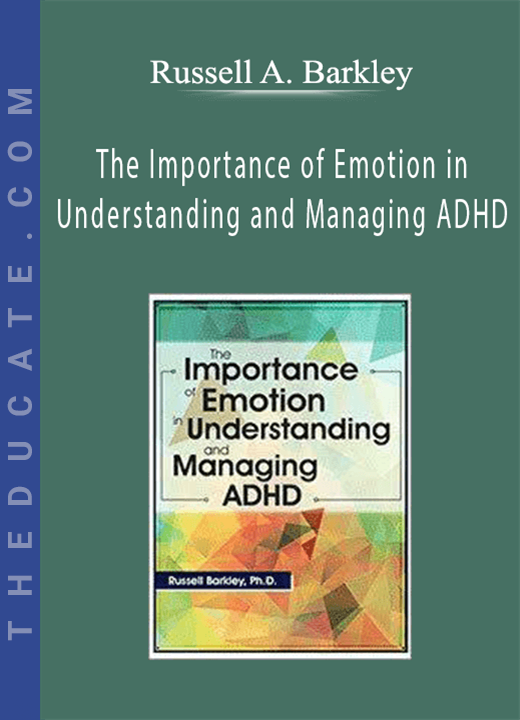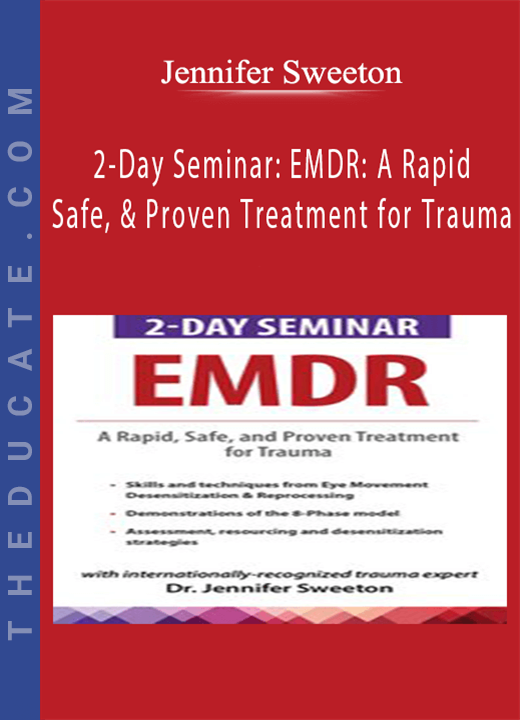Description
The Importance of Emotion in Understanding and Managing ADHD – Russell A. Barkley
ADHD is currently understood to be a disorder of inattention, impulsivity, and usually hyperactivity that arises in childhood or early adolescence and is highly persistent over time in most cases. However, since the first medical papers have been published on ADHD starting in 1798, emotion has always been included in the conceptualization of the disorder up through the 1970s. Beginning with DSM-II and progressing to the present, emotional dysregulation has been excluded from the clinical conceptualization of the disorder and the diagnostic criteria and relegated to an associated problem or the result of comorbid disorders.
This presentation reviews the evidence from the history, neuropsychology, neuro-anatomy, and observational research that shows that emotional impulsiveness and deficient emotional self-regulation are an integral part of ADHD. Returning emotion to its rightful place as a core feature of the disorder also serves to better explain the development of comorbid disorders, such as oppositional defiant disorder, and well as various life course impairments. Dr. Barkley, internationally recognized authority on ADHD, will discuss how to determine which aspects of emotional adjustment problems in ADHD cases are the result of the disorder and which are likely to be the consequence of comorbidity or other life course circumstances. He will also address the implications of including emotion in ADHD for its management.
- Summarize history of ADHD and the central place of emotion in the conceptualization of the disorder
- Explain the current neuropsychological theories of ADHD and the key role of emotional self-regulation problems in understanding the nature of ADHD
- Describe the neuro-anatomy of ADHD and why those brain regions implicated in the disorder would be associated with poor emotional self-regulation
- Recognize why certain comorbid disorders such as ODD are better explained by the role of emotion in ADHD than by the current DSM view of ADHD
- Identify how dysregulated emotional control in ADHD predicts the development of various life course impairments
- Summarize the role of poor emotion regulation in the assessment and management of ADHD
Current View of ADHD
History of Involvement of Emotion in ADHD
- Poor Emotion Regulation is in ADHD back to 1775
- DSM-II Eliminates Emotional Dysregulation from ADHD
Neuro-anatomy of ADHD
- Disturbances to Anterior Cingulate Cortex
Neuropsychology of ADHD
- Involvement of “Hot” Emotional Executive Circuits
Review of Psychological Evidence
- Emotional Impulsiveness
- Poor Self-Regulation of Emotion
Unique Contribution of Emotional Impulsiveness to Impairments
Role of Emotional Impulsiveness
- Risk for Comorbid Oppositional Defiant Disorder
Implications of Emotional Dysregulation for Diagnosis
Implications of Poor Emotional Self-Regulation for Treatment







6 reviews for The Importance of Emotion in Understanding and Managing ADHD – Russell A. Barkley
There are no reviews yet.